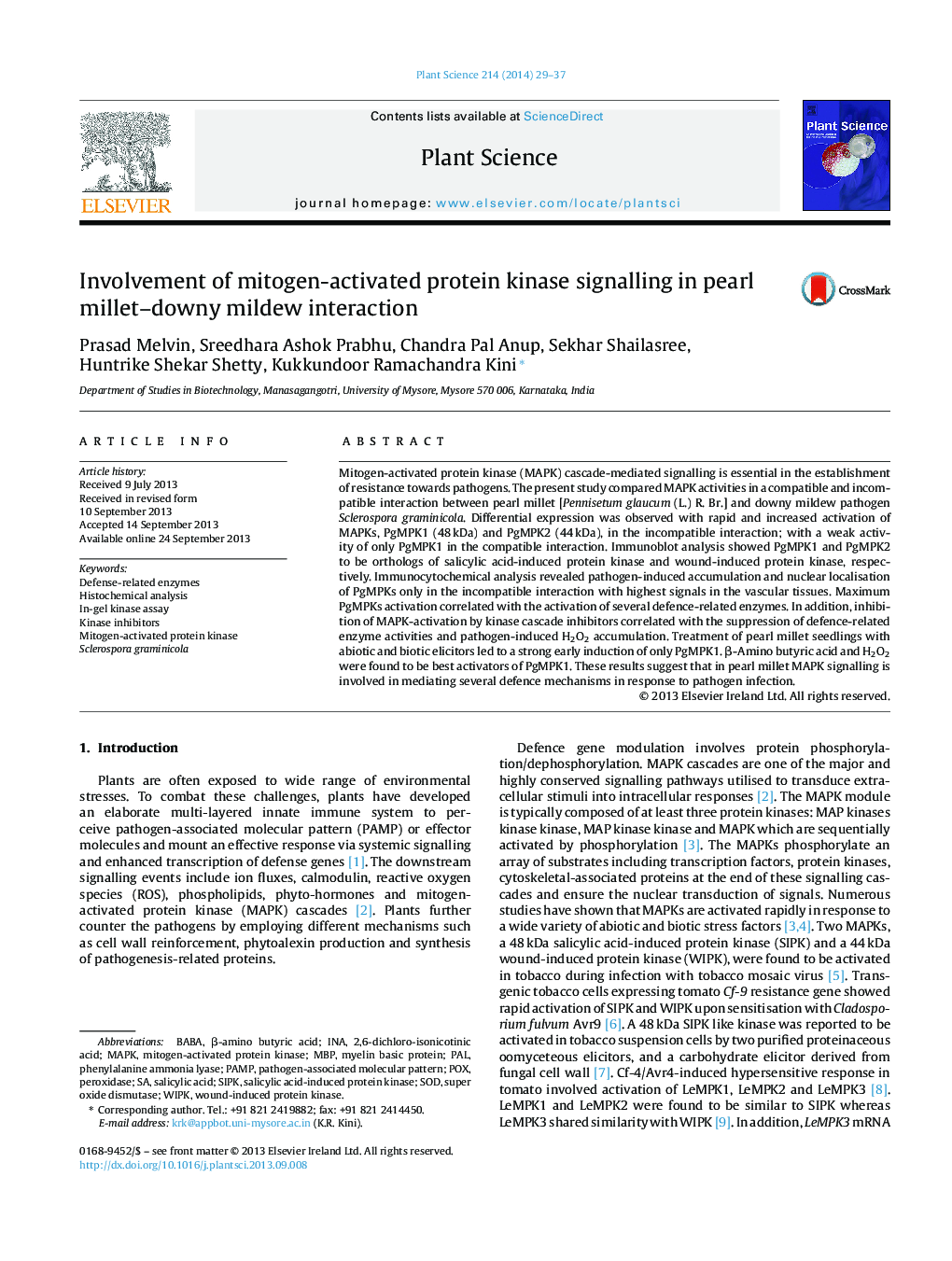| کد مقاله | کد نشریه | سال انتشار | مقاله انگلیسی | نسخه تمام متن |
|---|---|---|---|---|
| 2017118 | 1542071 | 2014 | 9 صفحه PDF | دانلود رایگان |

• MAPK signalling involved in pearl millet's defence against downy mildew.
• Differential number of kinases induced by pathogen in the two pearl millet cultivars.
• Pathogen induced a rapid and increased activation of MAPKs in resistance cultivar.
• Maximum activation of PgMPKs paralleled activation of defence enzymes and H2O2.
• β-Amino butyric acid and H2O2 were found to be best activators of PgMPK1.
Mitogen-activated protein kinase (MAPK) cascade-mediated signalling is essential in the establishment of resistance towards pathogens. The present study compared MAPK activities in a compatible and incompatible interaction between pearl millet [Pennisetum glaucum (L.) R. Br.] and downy mildew pathogen Sclerospora graminicola. Differential expression was observed with rapid and increased activation of MAPKs, PgMPK1 (48 kDa) and PgMPK2 (44 kDa), in the incompatible interaction; with a weak activity of only PgMPK1 in the compatible interaction. Immunoblot analysis showed PgMPK1 and PgMPK2 to be orthologs of salicylic acid-induced protein kinase and wound-induced protein kinase, respectively. Immunocytochemical analysis revealed pathogen-induced accumulation and nuclear localisation of PgMPKs only in the incompatible interaction with highest signals in the vascular tissues. Maximum PgMPKs activation correlated with the activation of several defence-related enzymes. In addition, inhibition of MAPK-activation by kinase cascade inhibitors correlated with the suppression of defence-related enzyme activities and pathogen-induced H2O2 accumulation. Treatment of pearl millet seedlings with abiotic and biotic elicitors led to a strong early induction of only PgMPK1. β-Amino butyric acid and H2O2 were found to be best activators of PgMPK1. These results suggest that in pearl millet MAPK signalling is involved in mediating several defence mechanisms in response to pathogen infection.
Journal: Plant Science - Volume 214, January 2014, Pages 29–37